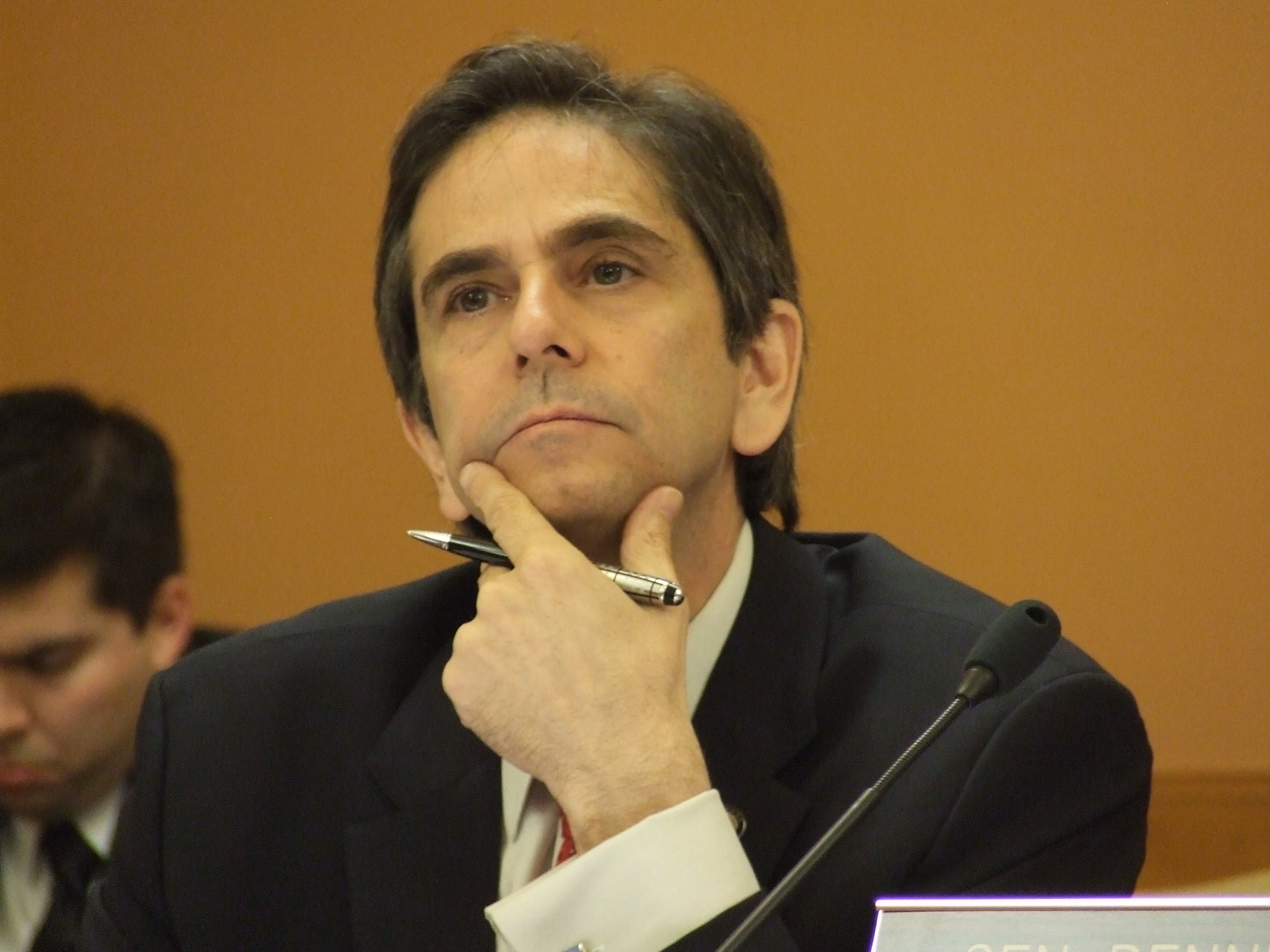Kansas public unions oppose collective bargaining bill
Topeka ? Dozens of firefighters, road workers, correctional officers and other public employees packed a Statehouse committee room Wednesday to speak against a bill that would strip many of their collective bargaining rights.
But a conservative legislator, as well as the Kansas Chamber and the think tank Kansas Policy Institute, argued that reining in the power of labor unions would make government more efficient and more like private enterprise.
Senate Bill 179, modeled after a law passed by Republican Gov. Scott Walker of Wisconsin in 2010, would abolish the Kansas Public Employee Relations Board and put the Kansas Secretary of Labor in charge of administering the Public Employer-Employee Relations Act, or PERA, the law that governs union negotiations and grievance procedures.

Rebecca Proctor, head of the Kansas Association of State Employees, testifies in the Senate Commerce Committee against a bill that would strip public employee unions of much of their bargaining power.

Sen. Jeff Melcher, R-Leawood, is pushing legislation to restrict the collective bargaining power of public employee unions.
The bill would also limit the scope of negotiations with public employee unions to salaries and wages, and it would require a public vote before any local government could elect to bring itself under the terms of PERA.
Sen. Jeff Melcher, R-Leawood, who introduced the bill, said it’s intended to make state and local governments operate more like private industry.
“We’ve seen that the private sector works very well in situations where they have very low, or no negotiated terms,” Melcher said. “We don’t see that people are being mistreated, that there are safety issues.”
“What this bill does is, it tends to remove the divide between having one side vs. the other,” he continued. “When you have a very heavily negotiated agreement, it’s almost based on the assumption that anything that’s not in the agreement is just fair game and there are no rules that apply to that.”
Sen. Tom Holland, D-Baldwin City, questioned Melcher about his attendance at meetings of the American Legislative Exchange Council, or ALEC, a politically conservative national organization funded by dozens of large industries which writes model legislation for states.
Holland then asked whether Melcher was familiar with ALEC’s position on public employee unions. Melcher said he didn’t know ALEC’s position, and at that point the committee chairwoman, Sen. Julia Lynn, R-Olathe, tried to cut him off, saying the question was irrelevant. But the crowd erupted in applause when Holland insisted that the question was relevant.
“I’m not sure what ALEC’s position is, but this is my position,” Melcher said. “I’m the one contributing to ALEC, not the other way around.”
State and local government employees testified that they do face dangers on the job, and without collective bargaining, many of their rights would be taken away by employers.
Derrick Baxter, a state correctional officer, said one of the biggest issues his union deals with is forced overtime for prison guards, despite rules that say guards are not supposed to work more than 12 hours in a 24-hour period.
Rick Wiley, a union steward and employee at the Kansas Department of Transportation, said he has often had to use grievance procedures to discuss safety issues because managers routinely cancel mandatory safety committee meetings if they disagree with agenda items submitted by employee committee members.
And Kristen Marr, president of the Kansas Chapter of the Fraternal Order of Police, said many police departments already have a hard time recruiting new officers, and without the ability to bargain for fringe benefits to attract new employees, many police departments would quickly become understaffed, threatening public safety.
The committee only heard testimony on the bill Wednesday, and it has not yet voted on whether to send it to the full Senate.
The collective bargaining bill was the first of two bills the Commerce Committee will hear this week dealing with public employee unions.
On Thursday, it will hold a hearing on Senate Bill 212, which would prohibit state and local government agencies, including school districts, from collecting union dues through payroll deductions.







